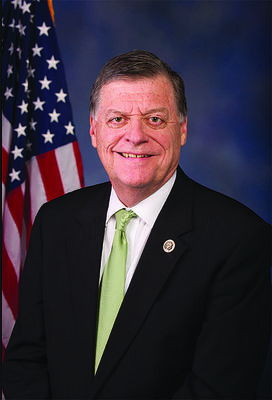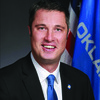Bringing awareness to Alzheimer's

During Alzheimer’s and Brain Awareness Month, we remember that many families have felt the heartbreaking impact of Alzheimer’s disease in some way. Sadly, more than six million Americans are currently suffering with the disease. Throughout this month, we recognize this national health crisis and draw attention to efforts to slow down, prevent and ultimately find cures for Alzheimer’s and other forms of dementia.
Like many across the country, my family knows all too well the heartbreaking decline that takes place in those suffering with this disease. During the last several years of my father’s life, my family watched helplessly as he became a different person and slowly lost a lifetime of memories throughout the various stages of Alzheimer’s.
Unfortunately, the Alzheimer’s Association recently reported that Alzheimer’s and dementia-related deaths increased 16 percent during the coronavirus pandemic. Even before this rapid increase, this national health crisis carried enormous financial and human costs, straining both public and private budgets. In fact, it is credited as the most expensive disease in the United States. By 2050, Alzheimer’s is projected to cost our country more than $1.1 trillion, even before inflation. That is more than three times the government spending under Medicare and Medicaid and in out-of-pocket spending.
However, I am encouraged that steps have been taken to provide some hope and find answers. As the top Republican leader on the appropriations subcommittee responsible for health spending, I have always been a staunch supporter and advocate for increasing funding for dedicated Alzheimer’s disease research at the National Institutes of Health. When I chaired the panel, I was proud to shepherd and help secure historic funding increases for this worthy cause – quadrupling federal support from $600 million a year to $3.1 billion this year.
Thanks to Congress prioritizing and delivering more funding for biomedical research, there have been promising developments in the fight against Alzheimer’s in recent months and years. Just this month, the Food and Drug Administration approved a new drug created to slow cognitive decline in those suffering with the disease – this is the first new drug to treat Alzheimer’s since 2003. Because of these advancements and others to come, we must keep up the momentum. Indeed, for my part, I remain dedicated to working with my colleagues on both sides of the aisle to build on and further boost research funding that could lead to lifesaving clues, answers and treatments.
This Congress, I am proud to cosponsor the Alzheimer’s Caregiver Support Act, which authorizes grants to public and non-profit organizations to expand training and support services for families and unpaid caregivers of patients with Alzheimer’s or other forms of dementia. I am also a cosponsor of the Comprehensive Care for Alzheimer’s Act, which would pilot a new dementia care management model that would provide comprehensive care management services to Medicare beneficiaries with Alzheimer’s.
Unfortunately, there are still a lot of unknowns about the cause of Alzheimer’s as well as why and how it progresses. In the quest for answers and treatments, we must continue to prioritize funding as well as advocate for the quality of life for patients. If we can find answers and solutions for Alzheimer’s, the entire nation will be better off.
Please support The Comanche Times by subscribing today!
